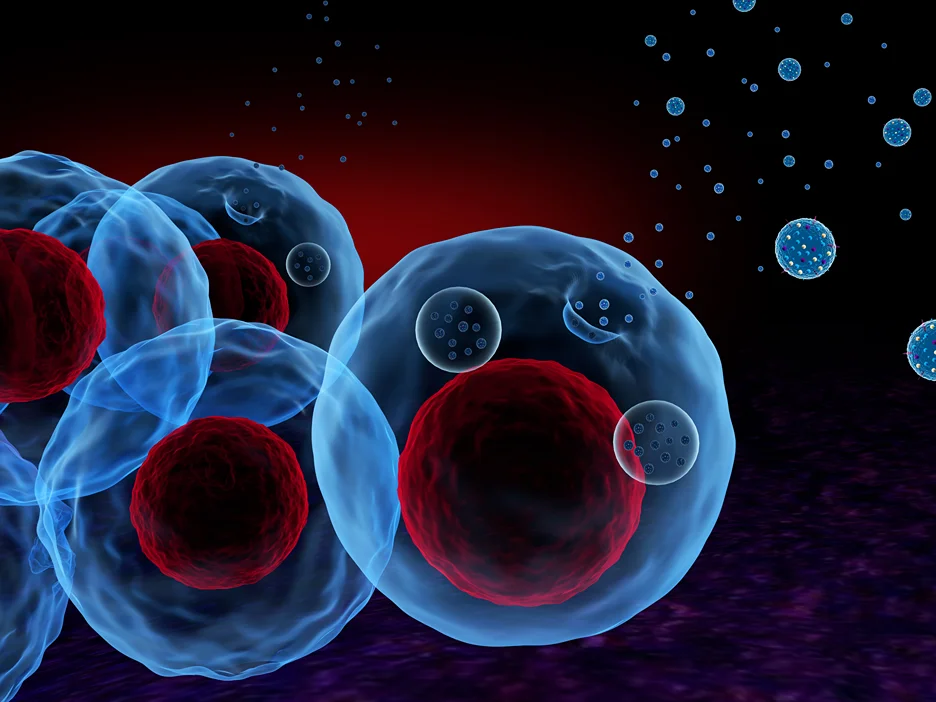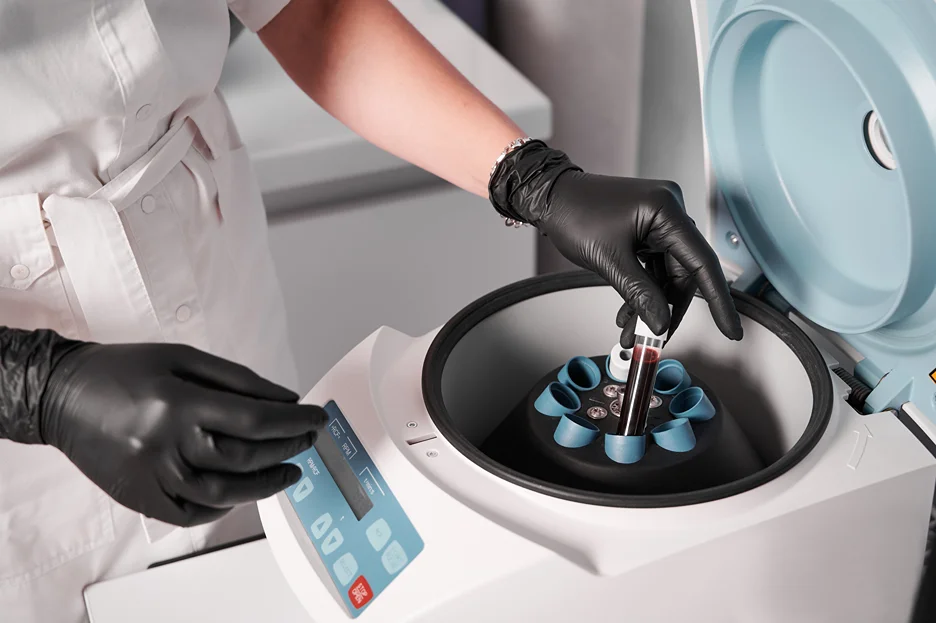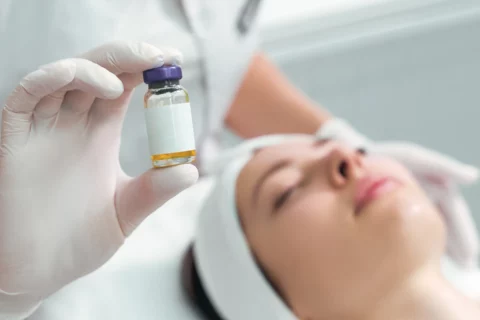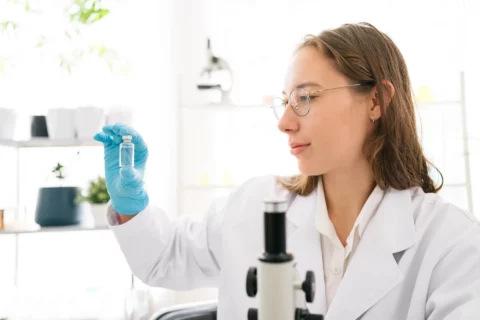Unlocking the Marvels of Cellular Messengers
Get ready for a riveting voyage into the universe of exosomes and their incredible impact on our well-being!
Imagine stepping into a world where minuscule cellular messengers, known as exosomes, play a leading role in maintaining health and even contributing to disease transmission. It’s like discovering a hidden treasure chest of intercellular communication secrets.
What Are Exosomes? Unveiling Nature’s Tiny Couriers

Picture this: a world where small, bubble-like structures, known as exosomes, are the unsung heroes of intercellular communication.
These minuscule vesicles, released by cells, are like the postal service of the body, shuttling essential biomolecules between cells and ensuring that the orchestra of life plays harmoniously.
But what exactly are these cellular messengers?
Exosomes are small, membrane-bound vesicles that serve as the ultimate mediators of communication between our cells.
They’re like tiny capsules of wisdom, carrying proteins, lipids, DNA, and RNA – the building blocks of cellular conversation.
In the grand theater of biological processes, exosomes are instrumental in maintaining cellular health and functionality.
They’re the diplomats of the body, facilitating discussions that keep everything in balance. Whether it’s delivering important instructions or sharing crucial information, exosomes are the linchpin of our well-being.
Therapeutic Potential of Exosomes
Exosomes have shown promise in various biomedical applications, particularly in the fields of sexual and reproductive health, urology, and hormone therapy.
Here’s why exosomes are creating buzz in the medical world:
- Spermatogenesis: Exosomes are being explored for their role in regulating spermatogenesis, potentially offering new insights into male fertility and reproductive health.
- Testosterone Regulation: Research indicates that exosomes may play a role in testosterone regulation, opening doors for innovative approaches in managing testosterone levels and related conditions.
- Hormone Therapy: Exosomes hold potential as delivery vehicles for sex hormones, offering a targeted and efficient means of hormone therapy.
These exciting developments in exosome research pave the way for groundbreaking advancements in addressing sexual and reproductive health, urological conditions, and hormone-related disorders.
Exosome Therapy in Dermatology

Exosomes, being natural carriers of genetic material and proteins, have shown promise in dermatological applications.
They have the ability to modulate immune responses, promote tissue regeneration, and regulate cellular processes crucial for skin health.
Here is a table highlighting the potential applications of exosome therapy in dermatology:
| Skin Condition | Potential Benefits of Exosome Therapy |
| Aging-related changes | Stimulates collagen production, improves skin elasticity |
| Acne | Regulates sebum production, reduces inflammation |
| Scarring | Promotes tissue regeneration, minimizes scar formation |
| Hyperpigmentation | Inhibits melanin production, evens out skin tone |
| Wrinkles | Enhances skin hydration, reduces fine lines and wrinkles |
Exosome therapy has the potential to revolutionize dermatological treatments, offering a promising avenue for addressing various skin concerns and maintaining skin health.
Exosome Therapy for Skin Rejuvenation
With their ability to modulate immune responses and promote tissue regeneration, exosomes have shown promise in dermatological applications, particularly for skin rejuvenation.
Exosomes offer exciting potential for skin rejuvenation, as they can stimulate collagen production, improve skin texture, and enhance overall skin health. Exosomes derived from adipose tissue contain growth factors and hormones that can promote skin rejuvenation.
They also support the regeneration of damaged skin cells, contributing to a more youthful and radiant appearance.
Exosomes also play a vital role in regulating skin inflammation and promoting tissue repair, further enhancing their potential for skin rejuvenation.
Exosome Therapy in Regenerative Medicine
In regenerative medicine, exosome therapy holds significant promise. These tiny vesicles derived from stem cells contain genetic material and proteins that can modulate cellular functions, making them valuable for treating various conditions.
In the field of regenerative medicine, exosome therapy is being explored for its potential to enhance tissue repair and regeneration, offering hope in addressing conditions such as cardiovascular diseases, neurodegenerative disorders, and musculoskeletal injuries.
The therapeutic potential of exosomes extends to their ability to influence the expression of genes related to tissue repair, making them a promising avenue for advancing regenerative medicine.
Embracing exosome therapy in regenerative medicine may pave the way for groundbreaking advancements in patient care and treatment outcomes.
Exosome Therapy Vs. Stem Cell Therapy

Both offer unique approaches to regenerative medicine with distinct mechanisms of action and potential therapeutic applications.
- Regenerative Potential: Exosomes have shown the ability to promote tissue repair and regeneration, offering potential benefits for conditions like skeletal muscle injuries and heart disease.
- Mechanism of Action: While stem cell therapy involves the transplantation of cells to replace damaged tissue, exosomes exert their effects by transferring bioactive molecules, such as proteins and RNA, to target cells. This transfer influences processes like blood vessel formation and tissue mass preservation.
- Clinical Applications: Stem cell therapy has been explored for various diseases, but exosomes, due to their small size and ability to cross biological barriers, hold promise for targeted delivery and therapeutic intervention in conditions like heart disease and neurodegenerative disorders.
Clinical Usage and Delivery of Exosomes
Using exosomes for clinical applications and targeted delivery is revolutionizing medical therapies and treatments.
Exosomes have shown promise in the treatment of various medical conditions, including cancer, heart disease, and neurological disorders.
In targeted delivery, exosomes can be engineered to carry therapeutic payloads to specific cells or tissues, minimizing side effects and maximizing treatment efficacy.
Furthermore, exosomes have potential applications in diagnostics, serving as biomarkers for disease detection and monitoring.
The use of exosomes in pediatric medicine is also being explored, holding potential for treating conditions related to child development and health.
As research in this field continues, exosomes are poised to play a crucial role in personalized medicine and innovative treatment strategies tailored to individual patients.
Face Med Store provides cutting-edge exosome products for advanced medical treatments — contact us today!
Future of Exosome Therapy Research

How can exosome research pave the way for groundbreaking advancements in personalized medicine and targeted therapies?
The future of exosome research holds immense potential for transforming medical practices and treatments. Here’s what you can expect:
- Personalized Medicine: Exosome research may lead to the development of personalized treatments tailored to an individual’s unique genetic makeup and disease profile, enhancing treatment efficacy.
- Targeted Therapies: With a deeper understanding of exosomes, targeted therapies for various diseases, including cancer and neurodegenerative disorders, can be developed, minimizing side effects and improving outcomes.
- Disease Diagnosis: Advancements in exosome research could lead to innovative diagnostic tools for conditions such as cancer, heart disease, and fertility issues, including semen analysis for adult men.
The ongoing advancements in exosome research promise to revolutionize the medical landscape, offering hope for more effective, personalized, and targeted healthcare solutions.
Frequently Asked Questions on Exosome Therapy
How Are Exosomes Being Used in Dermatology for Therapeutic Purposes?
Exosomes play a promising role in dermatology for therapeutic purposes. They’re used in experimental treatments for wound healing, skin rejuvenation, and hair growth. Research is ongoing, but exosomes show potential for innovative dermatological interventions.
What Are the Potential Applications of Exosomes for Skin Rejuvenation?
Exosomes have potential applications for skin rejuvenation, offering a promising avenue for cosmetic enhancement. Their role in intercellular communication and ability to deliver therapeutic molecules make them an intriguing option for addressing skin aging concerns.
How Do Exosomes Compare to Stem Cell Therapy in Terms of Their Effectiveness and Potential Uses?
Exosomes, unlike stem cell therapy, offer a non-invasive and versatile approach to intercellular communication and potential drug delivery. Their small size and diverse cargo make them promising tools in various fields, from cancer research to therapeutics.
What Are the Current Clinical Uses and Methods of Delivering Exosomes for Therapeutic Purposes?
Exosomes are used in clinical settings for disease therapy, including cancer and heart disease. Methods for delivering exosomes therapeutically include direct administration and loading with therapeutic molecules. Ongoing research explores their potential in various clinical fields.
What Are the Key Areas of Focus in Future Exosome Research and Potential Advancements in the Field?
In future exosome research, key areas of focus include understanding cargo sorting mechanisms, identifying reliable markers, and exploring potential clinical applications in cancer, heart disease, and pregnancy-related conditions. Advancements aim to enhance diagnostics and targeted therapeutics.






